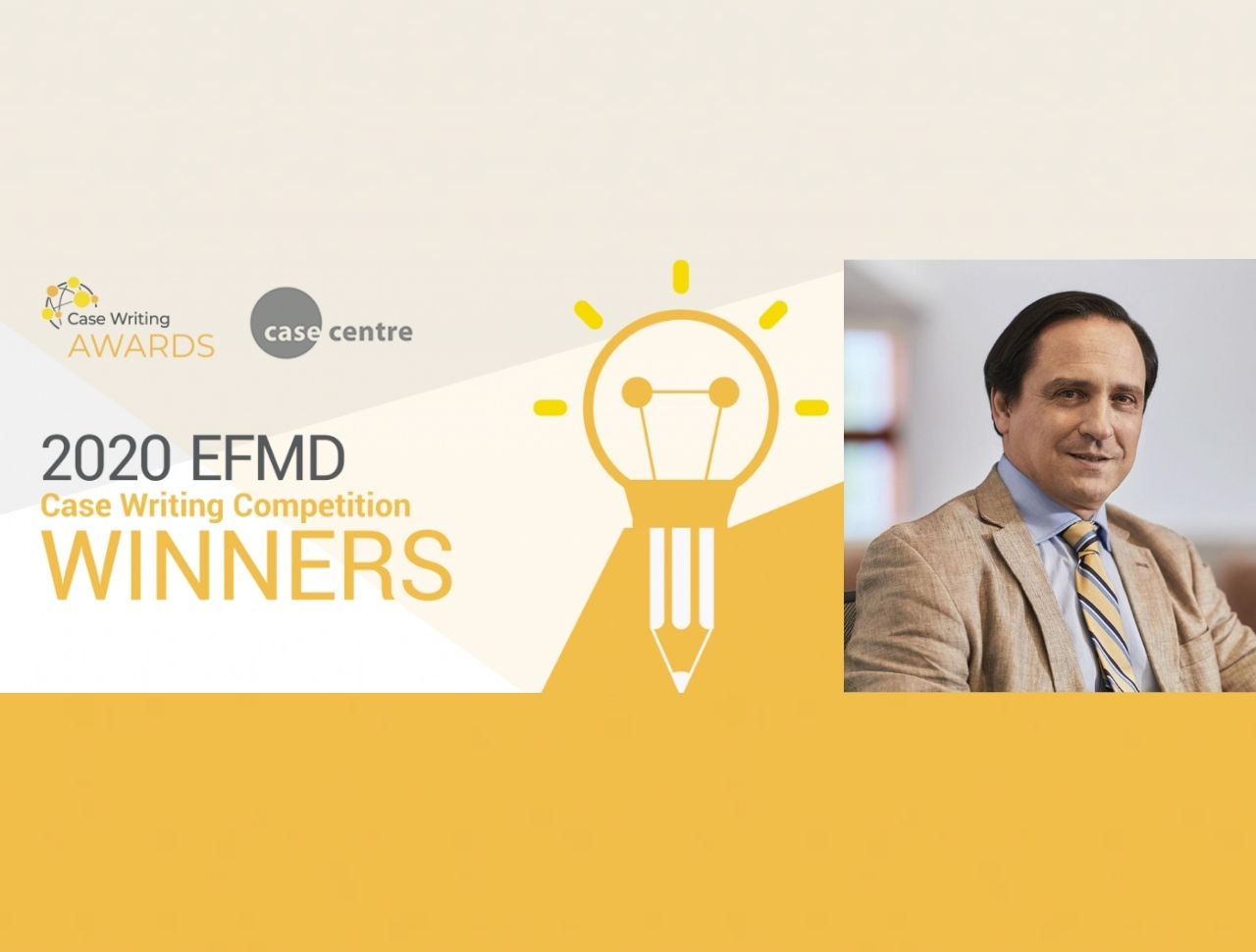Work on a Colombian cement company, in whose writing Ezequiel Reficco collaborated, is distinguished in the category of business cases in Latin America.
By JOSÉ ÁNGEL DE LA PAZ | EGADE BUSINESS SCHOOL
The pedagogical case study “The internationalization of Cementos Argos”, the result of a collaboration between Ezequiel Reficco, EGADE Business School - Tecnológico de Monterrey professor, and Esteban R. Brenes and Luciano Ciravegna, INCAE Business School professors, was awarded a prize in the 2020 Case Writing Competition of the European Foundation for Management Development (EFMD).
EFMD is an organization recognized globally as an accreditation body for business schools. Its EQUIS accreditation, which EGADE possesses, forms part of the “triple crown”, the highest recognition a business school can obtain internationally.
The EFMD Case Writing Competition is an annual recognition of the most innovative pedagogical cases, with 16 prize categories in the latest edition. The Argos case was the winner in the category “Business Cases in Latin America”, sponsored by Universidad Externado de Colombia.
"In my opinion, the EFMD case writing competition is a golden opportunity to showcase the excellent work executed by Latin American companies, allowing them to gain visibility among educators from other regions. I would like to thank the organizers for generating this platform, which creates incentives for teachers from every corner of the globe to engage in case research," Ezequiel Reficco commented.
This is the second time that Reficco has been recognized in this competition. In the 2018 edition, his pedagogical case “For&From: Inditex Group’s Social Franchise” was the winner in the category “Inclusive Business Models”.
???? We are very happy to announce the winners of the 2020 #EFMDcase Writing Competition @TheCaseCentre
— EFMD News (@EFMDNews) April 19, 2021
With over 550 submissions in 16 management-related categories, this year was exceptional, congratulations! ????
???? The #EFMDCase Writing Awards go to…https://t.co/APL8dyhtIq
This pedagogical case emerged in October 2014, when the Cementos Argos Board of Directors and Management Team were looking for a way to capitalize on the announcement of the merger between Holcim and Lafarge for the company’s expansion. The company resulting from the Holcim-Lafarge merger would have to disinvest in several countries, including Brazil and Canada, and the Management Team wanted to know whether Argos should take advantage of this opportunity to acquire assets in those markets.
The company’s Board of Directors believed that Argos had the potential to increase shareholder value significantly, and driving its international expansion seemed to be the most attractive option to achieve this. However, determining where the company should expand to required careful analysis.
“The internationalization of Cementos Argos” forms part of the CLADEA-BALAS Case Consortium (CBCC) collection, created in partnership with Harvard Business Publishing, and to which EGADE belongs.
Ezequiel Reficco has an extensive background in case methods. During the eight years he was connected to Harvard Business School, from 2000 to 2008, a large part of his work centered around case development and his participation on the HBS Review Committee, a forum that evaluated the quality of external cases seeking publication through Harvard Business Publishing (HBP). He was the editor in charge of the two sole collections of Latin American cases published through HBP: CBCC, from 2013 to 2018, and the Social Enterprise Knowledge Network (SEKN), between 2015 and 2018.
In addition, he has founded case production centers at Universidad de San Andrés (Buenos Aires) and Universidad de Los Andes (Bogotá). In the last decade, he has trained colleagues in case methods at diverse business schools in America, Europe, Asia and Africa.
He is currently leading the EGADE Business School Case Hub. This center supports the development of attitudes, knowledge and teaching skills regarding the case method, through the training and accompaniment of faculty who are interested in this methodology; the development of practical skills for case teaching, with workshops for testing the cases produced by the school’s professors; and the publication of cases in internationally visible collections, facilitating material, human and intellectual resources to all the faculty members committed to this methodology.
